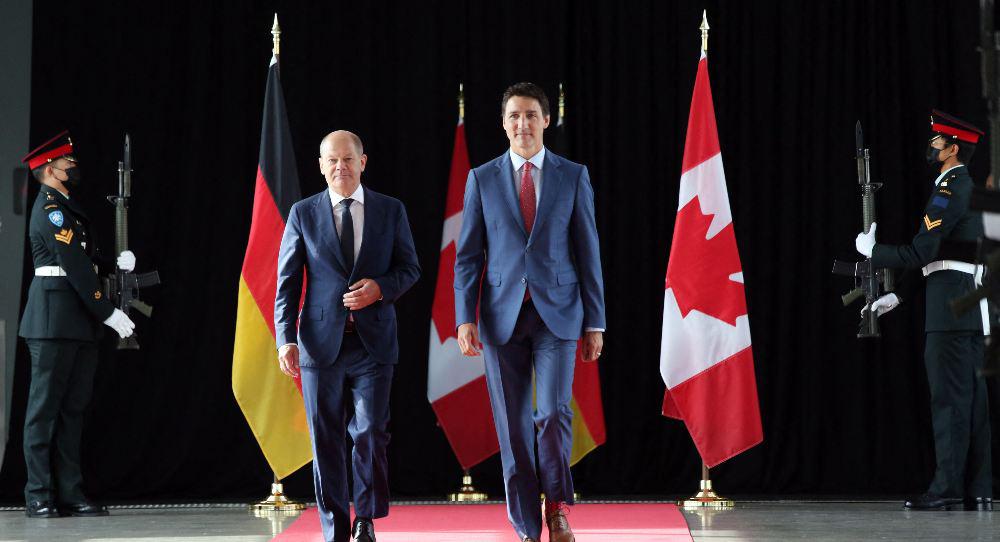What an autumn that is shaping up for European leaders. The problems that prevailed before EU institutions took their summer break have not gone away. And there are new ones on the agenda.
Russia’s war in Ukraine continues. The possibility of it ending or even the chance of diplomacy playing any kind of role is not in sight. The destruction is unremitting in terms of casualties, internal displacement, and millions being forced to flee the country. All this is taking place along the borders of the EU.
The energy crisis continues too, as Russia keeps reducing its gas supplies to Europe. Moscow’s aim is to use energy as a geostrategic and political weapon. As energy prices rise, so too will the pressure on European governments to cushion the costs for consumers.
The impact of these prices has yet to be translated into a tangible negative political impact. Such an impact is exactly what President Vladimir Putin is hoping for. The Kremlin can blame the EU’s sanctions on Russia for the energy crisis. So far, the bloc has been united in its sanctions policy. Rising energy bills could change that sentiment.
That is why the political crisis unfolding in Italy matters. The specter of a far-right wing—and Russia-friendly—government taking over in Rome, after a spurt of confidence generated by Mario Draghi’s short stint as prime minister, should worry EU leaders.
As a major economic force into the EU, the fortunes of Italy are being closely watched, if not influenced, by Russia. What Putin wants are cracks in an important EU country. Rome could be easy prey. European governments are not playing down how the impact high energy prices combined with inflation will affect domestic public opinion in Italy and other countries—not to mention the fragility of the Eurozone economies.
Given these dynamics, Germany’s vice-chancellor and economy minister, Robert Habeck, has been buying as much gas as possible in order to fill the country’s gas storage facilities before winter sets in.
His three-day visit to Canada with Chancellor Olaf Scholz is not only about seeking alternative energy supplies as Germany has finally realized the cost of its decades-long dependence on Russian gas. This visit is also about trying to shore up a West that is being tested by Russia’s war in Ukraine—and by China, particularly its intentions with regard to Taiwan.
The tensions between Beijing and Taipei reflect the dangerous state of relations between China and the United States. This is not just a relationship based on competition and two sets of entirely different value systems. It is one that will either further fracture the West—and this includes the countries of Southeast Asia—or persuade Western governments to act strategically when it comes to China.
Strategy is not Europe’s forte. Look at the EU’s record in the Western Balkans. It has been left up to NATO to try and end the most recent dangerous standoff between Serbia and Kosovo that was triggered once again by the designation and recognition of car number plates between the two sides.
When it comes to China, the EU has come some way in revising its policy toward Beijing. It is no longer naïve about China’s economic, political, and investment influence or its combative authoritarian ideology. But the EU needs a sustainable strategy for Beijing and the region.
What happens in the South China Sea affects not only crucial commercial shipping lanes that are vital for so many economies—and Europe’s burgeoning trade ties with Taiwan. More fundamentally, what is at stake is the security and stability in this part of Asia.
Waiting for a security or military crisis cannot be an option for the Europeans. What is needed is for the EU, the United States, Canada, but also Japan, South Korea, Australia, New Zealand, and other countries in the region to forge a joint China policy that is strategic, not reactive.
Maybe that is wishful thinking, especially given the Biden administration’s attitude toward Beijing. But polemics and saber-rattling by the United States and China will weaken the West, leaving Europe strategically stranded.
Such is the autumn facing the EU.
This blog is part of the Transatlantic Relations in Review series. Carnegie Europe is grateful to the U.S. Mission to the EU for its support.








.jpg)